3 Epic Deep Tech Innovations to Watch
We attended the launch of A*ccelerate (A*STAR’s rebranded commercialisation arm) in November and met three companies which are revolutionising how we eat and move.

Four people to run a farm? We’ve got it covered
Put all of that into a machine and within 24 hours that mountain of scrap will be turned into fertiliser for gardens.
Local agritech start-up Archisen believes that it can improve access to food in urban areas- by tapping on the Internet-of-Things (IoT) and data analytics.
Its modular urban farming systems shorten the supply chain for land-scarce cities like Singapore which traditionally imports over 90% of its food from overseas.
Archisen believes in using technology to democratise farming- and more importantly take out the guesswork and complexity with data-driven processes. What that means- is each farm will be equipped with sensors that will provide farmers with real-time data such as microclimate and nutrient media conditions.
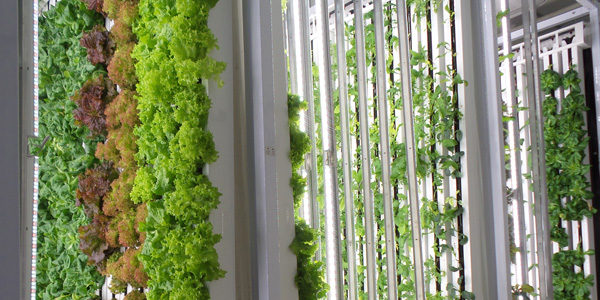
Archisen’s urban farming system can be operated by four people in a 4-000 square-foot farm- yet achieve the yield of a 4-hectare traditional farm.
“The company uses “statistical and mechanistical techniques to develop crop models for prediction and optimisation of crop yields. It involves collecting a range of data governing the growth and health of plants-” said Archisen’s co-founder- Sven Yeo.
As we implement our technology in more farms- each farm contributes to our database and simultaneously benefits from it so that after every successive cycle- the yield and quality will be enhanced in a progressive manner.
Sven Yeo of Archisen's co-founder.
Archisen has been working with different institutes within A*STAR – such as the Bioinformatics Institute – to adopt and co-develop technologies around data science- image analytics algorithms- smarter LED lighting and real-time detection of nutrient composition.
Meet Ivan- the robot whisperer
SIIX-AGT MedTech started as Abacus Global Technology- developing home-grown robots for surgical uses.
However- Ivan Khoo- Abacus’ founder- saw the increasing use of robotics in the healthcare sector and made national news with his power-assistive robotic beds that reduced a 300kg hospital bed to just 20kg.
The bed not only has motors for motion but also intelligence to maintain a safe speed and adjust when moving on a carpeted to a tiled floor. This innovation also requires only one nurse (instead of two) to handle and clinched the National Healthcare Group’s Innovation Supplier Award in 2014.
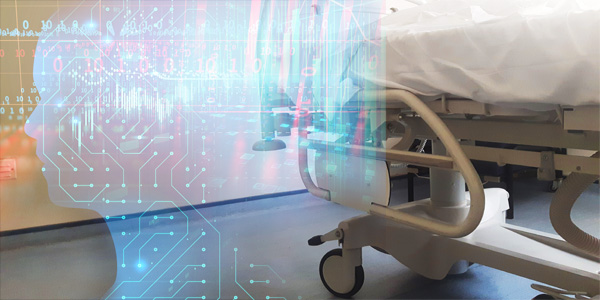
SIIX- Japan’s largest electronic manufacturing service organisation- has since invested in the company.
However- Khoo sees the danger of over-specialisation especially when investing in deep tech. Instead he sees more benefits in diversifying and developing service robots for other industries.
We need to think out of the box to apply deep tech to other market segments and create new or innovative solutions.
Ivan Khoo of Abacus Global Technology's founder.
One solution is to create base modules that can be repurposed for different market segments – much like the Lego bricks of service robots.
SIIX-AGT collaborated with A*STAR’s Institute of Infocomm Research and Dr Yau Wei Yun- the Institute’s department head for robotics- to develop an autonomous robot algorithm that can manoeuvre intelligently indoors. To develop wireless charging capabilities- the company collaborated with A*STAR’s Institute of High Performance Computing researcher Dr Yeoh Wei Siang.
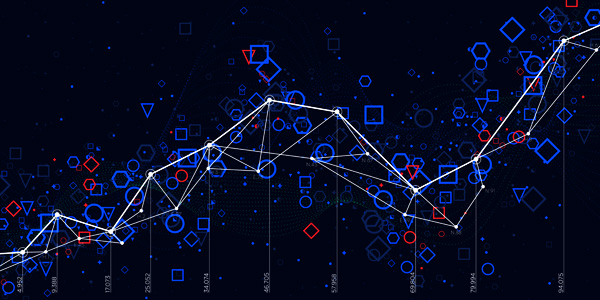
This close collaboration with various A*STAR institutes has enabled the company to launch a version of the service robot earlier in September- with another in the pipeline for 2019.
Khoo’s service robot is essentially made up of intuitive power drives- or IPD- which integrate various technologies (including electromechanical sensors- power management- wireless communication and fleet management systems) in a single unit.
According to Khoo- “IPD give us the capability to easily integrate artificial intelligence (AI) technologies to make our robots more intuitively intelligent.”
The result? Service robots that are able to charge wirelessly and navigate autonomously indoors and outdoors. The robot has been trialled by the Singapore Police Force for crowd control purposes. It also comes equipped with fingerprint authentication- 360-degree live video capture and multi-terrain navigation.
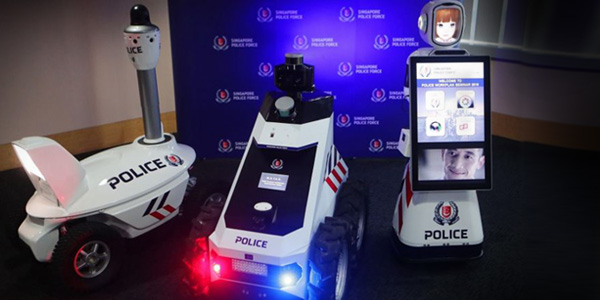 (From right) The S5 pan-tilt-zoom patrol robot- Multi-purpose- all-terrain- autonomous robot and Future robot – display- that were unveiled at the Singapore Police Force's (SPF) annual workplan seminar.ST PHOTO: KELVIN CHNG
(From right) The S5 pan-tilt-zoom patrol robot- Multi-purpose- all-terrain- autonomous robot and Future robot – display- that were unveiled at the Singapore Police Force's (SPF) annual workplan seminar.ST PHOTO: KELVIN CHNG
When is a carpet not a carpet?
The Mill International is a 20-year-old Singapore company specialising in commercial- exhibition and event flooring. They took part in A*STAR SIMTech’s Collaborative Industry Project (CIP) a few years ago and found a way of commercialising a technology called printed electroluminescent lighting (EL).
These EL panels are low-energy- cost-effective and flexible- making them suited for use as backlight for advertisements- decoration- interactive packaging and entertainment.
An ongoing 12-month collaboration between The Mill International and A*STAR’s Singapore Institute of Manufacturing Technology- is expected to convert these sheets into carpets that light up the floor – literally.
To improve cost-efficiency- the collaboration will enable The Mill International to design- deploy and package EL technology into existing carpet tiles and develop the knowledge to recycle key components across projects. SIMTech is providing expertise and advice on the technical feasibility of clients’ designs.
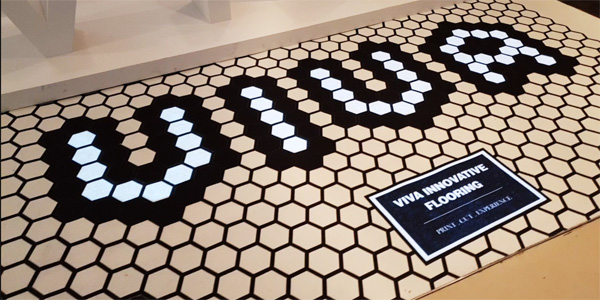
Clients will be able to use luminous and interactive carpets for aesthetic purposes or to provide directions and guidance with interactive flooring that light up. The Mill will also be able to better differentiate itself from its competitors and capture a larger overseas market with its unique product offering.
According to Matthew Fong- director of The Mill International- “The company partners with SIMTech and government agencies not only for grants- but more importantly for technological advancements to build capabilities. This is critical for enlarging our territory beyond our shores.”
Going broad to go deep
These innovations were among the many showcased at the A*ccelerate Now event in November 2018. A*ccelerate- previously known as ETPL- will continue to translate intellectual capital from A*STAR’s research to industry applications.

The common thread across the broad range of innovations showcased was how deep technology required a broad mix of disciplines to develop one practical solution. For example- urban farming according to Yeo is “where engineering- science and business needs to come together to create a viable- scalable and replicable model”.
Nonetheless- this access to deep technology may be out of reach of small- to medium-sized companies that form the backbone of economic growth in most countries.
Khoo believes that partnering with A*STAR and A*ccelerate offers access to deep technology know-how across different disciplines a small company would not have otherwise realised.
Similarly- Yeo articulates his start-up challenge: “As a start-up- time and resources are finite and it is not practical to divide them over too many fronts. There is a constant struggle to determine how and where to devote ourselves based on our needs versus assets.”
This is where forging strong partnerships with A*STAR and other collaborators come in. In order to leapfrog our capabilities without overextending ourselves- we select partners with the relevant experience and track record to co-develop disruptive technology for addressing industry issues.
A*STAR celebrates International Women's Day

From groundbreaking discoveries to cutting-edge research, our researchers are empowering the next generation of female science, technology, engineering and mathematics (STEM) leaders.
Get inspired by our #WomeninSTEM
